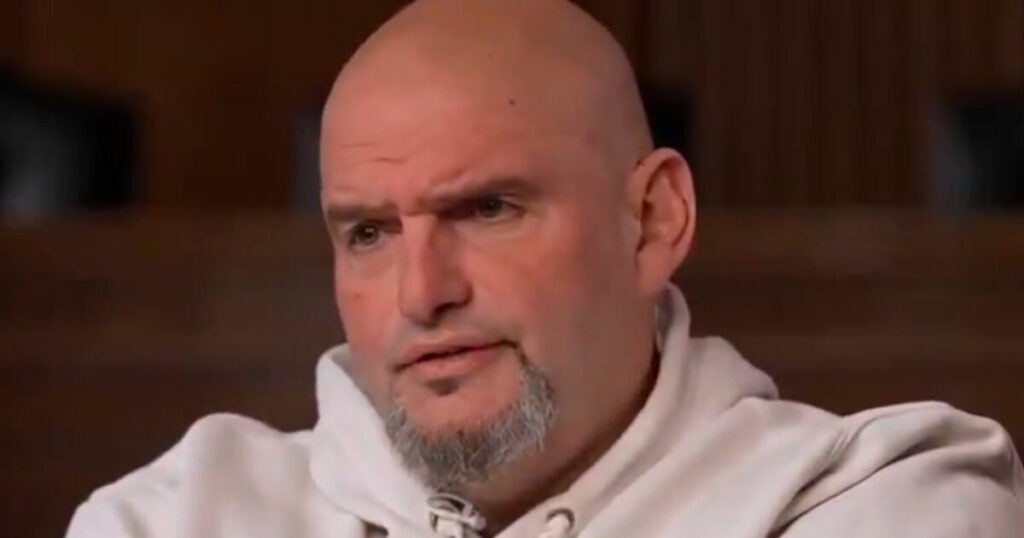Senator John Fetterman of Pennsylvania has sparked conversation by rejecting the radical left’s narratives that label former President Donald Trump as a fascist. In an interview with ABC’s Jonathan Karl, Fetterman reflected on Trump’s response after an assassination attempt, highlighting the political acumen displayed by Trump in the face of danger. He acknowledged that surviving such a traumatic event demonstrated a unique political capability and made clear that he does not associate Trump with fascism. This perspective diverges from the views of some Democrats, who have employed incendiary language to describe Trump, complicating Fetterman’s understanding of the political landscape.
When challenged by Karl about Vice President Kamala Harris’s previous description of Trump as a “fascist” during her campaign, Fetterman took a measured stance. He emphasized that while Harris is entitled to her opinions, he chooses not to use the term “fascist” himself. He suggested that such divisive language alienates many people, particularly in his home state of Pennsylvania, where many potential Trump voters are mischaracterized. Fetterman’s assertion emphasizes his commitment to a more grounded political discourse, focusing on the realities of American voting behavior rather than sensationalist labels.
The Pennsylvania Senator believes that what truly matters to voters are candidates who can effectively protect and enhance their version of the American way of life, rather than the labels affixed to political figures. By distancing himself from extreme rhetoric, Fetterman seeks to connect with a broader range of constituents, acknowledging their concerns and values while navigating the tumultuous political waters of today. This approach reflects his belief that political identity should not be warred over but discussed among all parties involved.
Fetterman’s willingness to work collaboratively across party lines is evident in his actions post-Trump’s election victory. Instead of being consumed by negativity, he has chosen to engage constructively with Trump’s administration. He has actively met with nominees for Cabinet positions, expressing a genuine interest in understanding their agendas. This willingness to collaborate speaks to his readiness to bridge the divides that often characterize American politics, especially in an era where bipartisan cooperation seems increasingly rare.
By meeting with figures like Trump’s Secretary of State nominee, Pete Hegseth, and other prominent Republicans, Fetterman indicates his commitment to engaging with differing political viewpoints. He publicly stated that such discussions are essential to fulfilling his responsibilities as a U.S. Senator, reinforcing the importance of dialogue over division. This strategy not only positions him as a moderate member of his party but potentially paves the way for bipartisan initiatives in a polarized political environment.
In summary, John Fetterman’s remarks and actions underscore a significant shift in the rhetoric typically associated with Democratic politicians discussing Donald Trump. By rejecting extremist labels like “fascist,” opting for a cooperative legislative approach, and validating the perspectives of constituents who side with Trump, Fetterman illustrates how a more reasoned and even-handed viewpoint can resonate within the current political climate. His strategy may serve as a template for other politicians seeking to find common ground amidst ongoing political divisions.

